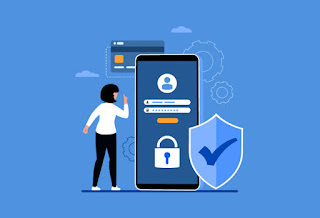Pros and Cons of Using Invite Codes
What are Invite Codes and Why Are They Used in Social Media Platforms?
Invite codes are a mechanism used by social media platforms to restrict access to their services, allowing only those who have received an invite code to register and create an account. This can be seen as a strategy to create a sense of exclusivity and to generate buzz around the launch of a new platform, such as Clubhouse, or to limit the rapid growth of a platform, as was the case with Gmail in its early days. Invite codes can also be used to ensure that new users are added to the platform by trusted members, such as friends or colleagues, which can lead to a higher level of trust and engagement within the community.
While invite codes can be an effective way for social media platforms to control the growth and quality of their user base, they can also limit access to those who may be interested in joining, but don't have an invite. This can lead to frustration and a negative experience for potential users who are unable to gain access to the platform. Additionally, invite codes can create a barrier to entry for certain groups, such as those who may not have a large social network or those who may not be part of the platform's target demographic.
In summary, invite codes can be an effective tool for social media platforms to control their growth and user base, but they should be used with caution to ensure that they do not create unnecessary barriers to entry or alienate potential users.
The Advantages of Using Invite Codes for Social Media Registration
The use of invite codes in social media registration has become increasingly popular in recent years, and for good reason. There are several advantages to using invite codes in social media registration that can benefit both users and the platform.
Firstly, invite codes can help to create a sense of exclusivity around a platform, which can make it more desirable to potential users. By requiring an invite code to register, the platform creates a sense of scarcity and makes it feel like a privilege to be part of the community. This can help to attract high-quality users who are more likely to engage with the platform and contribute to its growth.
Secondly, invite codes can help to prevent spam and fake accounts from being created on the platform. By requiring users to have an invite code to register, the platform can ensure that each user is verified and has been referred by an existing user. This can help to create a more trustworthy and reliable community, which can be beneficial for users who are looking for genuine connections and interactions.
Finally, invite codes can help to create a strong sense of community within the platform. By requiring users to be invited by an existing user, the platform can foster a sense of connection and belonging among its users. This can help to create a more engaged and active community, which can be beneficial for the platform's growth and success.
In summary, there are several advantages to using invite codes in social media registration. While there are also some disadvantages to consider, such as the potential for exclusion and limited growth, invite codes can be a powerful tool for creating a strong and engaged community on social media platforms like Bluesky and others.
The Disadvantages of Using Invite Codes for Social Media Registration
While invite codes can help maintain a sense of exclusivity and control over who can join a social media platform, there are also several disadvantages associated with this registration method.
Firstly, invite codes can limit the growth and reach of a social media platform. By restricting access to only those with a code, the number of potential users is limited. This can lead to slower growth and less engagement on the platform.
Secondly, invite codes can create a sense of elitism or exclusivity that may turn off potential users. If a platform is seen as too exclusive or difficult to join, users may be less likely to want to participate.
Thirdly, invite codes may also create a barrier to entry for certain groups, such as those who may not have access to a code or those who may not be in the same social circles as those who do have a code.
Lastly, invite codes can also be easily shared or sold, leading to the potential for fraudulent or spam accounts on the platform.
Overall, while invite codes can provide some benefits for social media platforms, it's important to consider the potential drawbacks before implementing them as a registration method.
A Detailed Look at Bluesky's Use of Invite Codes
Bluesky is a new, decentralized social media platform currently in development by Jay Graber. One of the unique features of this platform is the implementation of invite codes for registration. Bluesky's use of invite codes is intended to foster a sense of community and limit abuse within the platform.
The invite codes will work by allowing existing users to invite new users to join the platform. The new user will then receive a unique code that they can use to register. This code will be unique to that user and can only be used once. Once the user has registered, they will be able to invite others to join the platform in the same way.
One advantage of this approach is that it will help to limit spam and abuse on the platform. Because each user will have to be invited by an existing user, it will be more difficult for bots and fake accounts to infiltrate the platform. This will help to create a more authentic and engaged community.
However, one potential downside of this approach is that it may limit the growth of the platform. If users are only able to join through invite codes, it may be more difficult for the platform to attract new users who don't have connections within the community. This could result in slower growth and adoption of the platform.
Overall, Bluesky's use of invite codes is an interesting approach to social media registration. While it may have some limitations, it has the potential to create a more authentic and engaged community on the platform.
Other Social Media Platforms That Use Invite Codes
While Bluesky is still in development and has yet to be released, there are already other social media platforms that use invite codes as a way to control registration.
1. Clubhouse
One such platform is Clubhouse, an audio-based social media app that has gained popularity in recent months. Clubhouse has a strict invite-only policy and users can only join the app if they receive an invite code from an existing user. This has created a sense of exclusivity around the app, which has contributed to its rapid growth and high engagement rates.
2. Ello
Another platform that uses invite codes is Ello, a social media site that bills itself as "the creators' network". Ello is ad-free and focuses on providing a space for artists, designers, and other creatives to showcase their work and connect with others.
Ello was originally invite-only, but has since opened up registration to the general public. However, users can still invite others to join the platform and there is a certain cachet associated with being a part of the Ello community.
While invite codes can be an effective way to control registration and create a sense of exclusivity around a social media platform, they can also be a barrier to entry for some users. It can also make it difficult for new platforms to gain traction and grow their user base, as potential users may not have access to an invite code and may be hesitant to join a platform that they perceive as exclusive or difficult to join.
How Invite Codes Impact User Privacy and Security
One of the biggest concerns with using invite codes for social media registration is how it impacts user privacy and security. Whenever an invite code is used, it can be difficult to verify the identity of the person who is using it. This can lead to fake accounts being created, which can be used for malicious purposes such as spreading fake news or committing fraud.
On the other hand, invite codes can also be an effective way to control who has access to a social media platform. By limiting registration to those who have been invited, it can help to prevent bots and fake accounts from flooding the platform. It can also help to create a sense of exclusivity around the platform, which can be appealing to some users.
However, it's important to note that invite codes are not foolproof when it comes to security. If a code falls into the wrong hands, it can be used to gain unauthorized access to the platform. This is why it's important for social media platforms to have robust security measures in place to protect against unauthorized access.
Overall, the use of invite codes for social media registration can be a double-edged sword when it comes to privacy and security. While it can be an effective way to control who has access to the platform, it can also be a potential security risk if not implemented properly. Social media platforms need to carefully weigh the pros and cons of using invite codes before deciding whether or not to implement them.
How Invite Codes Affect Social Media Platform Growth and Adoption
Invite codes have become a popular way for social media platforms to manage growth and adoption. The use of invite codes can help a platform control who joins and how quickly, which can be beneficial for both the platform and its users. However, there are also potential downsides to using invite codes that should be considered.
On the positive side, invite codes can create a sense of exclusivity around a platform, which can make users feel like they are part of a special community. This can lead to stronger engagement and loyalty among users, as well as a sense of ownership and investment in the platform's success.
Additionally, invite codes can help a platform manage growth and ensure that it doesn't become overwhelmed with new users all at once. This can help maintain stability and prevent technical issues that could negatively impact the user experience.
However, there are also potential downsides to using invite codes. For one, it can limit the speed at which a platform grows, which could be a problem if the platform is looking to quickly build a user base. Additionally, if invite codes are difficult to obtain or require users to jump through too many hoops, it could turn off potential users and limit adoption.
Overall, the use of invite codes for social media platform registration has both pros and cons. While it can help manage growth and create a sense of exclusivity, it can also limit adoption and growth speed. Ultimately, the decision to use invite codes should be based on the goals and needs of the platform and its users.
The Potential for Invite Codes in Combating Fake News and Misinformation
Invite codes have been touted as a possible solution to combat fake news and misinformation on social media platforms. With invite codes, users would need to be invited by an already-registered user to join the platform, for example, Bluesky social. This would limit the number of fake accounts and bots that are often used to spread false information.
Bluesky, a decentralized social media protocol developed by former Twitter boss, Jack Dorsey, is one of the platforms considering the use of invite codes as a registration method. The idea is that users would need to be invited by a trusted source, such as a friend or family member, to join the platform. This would help to ensure that users are real people and not bots or fake accounts.
However, there are also potential downsides to using invite codes. One concern is that it could lead to a lack of diversity on the platform, as users may only invite people who share their same beliefs or interests. This could create echo chambers and limit the exchange of ideas and viewpoints.
Another potential issue is the exclusivity that invite codes could create. If the only way to join a platform is through an invite code, it could prevent certain groups of people from joining, such as those who are not well-connected or don't have access to invite codes.
Overall, while invite codes have the potential to combat fake news and misinformation, it's important to consider the potential downsides and ensure that they are used in a way that doesn't limit diversity and inclusivity on social media platforms.
The Role of Invite Codes in Building Online Communities
From my own personal research, I found that online communities are becoming increasingly popular as people seek to connect and engage with others who share similar interests. Invite codes have become an essential tool in building and growing these communities. They allow platform owners to control the growth of their community and maintain a certain level of exclusivity.
Invite codes can be used in various ways. In some cases, they are used to limit the number of new members who can join a community at any given time. I think this approach helps to keep the community small and manageable, ensuring that the members are able to engage with each other effectively.
In another way, I still think Invite codes can also be used to attract new members and build excitement around a community. This is what I mean - by making the invite process exclusive, it creates a sense of exclusivity and adds to the allure of the community. This approach can be particularly effective for niche communities, where exclusivity is seen as a sign of quality.
However, invite codes also have their drawbacks. They can create barriers for new members who may be interested in joining the community but do not have an invite code. This can limit the growth of the community and prevent it from reaching its full potential.
Invite codes can also be seen as elitist, which can be off-putting for some potential members. This can harm the community's reputation and lead to negative publicity.
Overall, the role of invite codes in building online communities is complex. While they can be effective in creating exclusivity, they can also limit growth and create barriers for new members. It is important for platform owners to carefully consider the pros and cons of using invite codes before implementing them.
Conclusion and Recommendations for the Future of Invite Codes in Social Media Registration
After analyzing the pros and cons of invite codes in social media registration, it's clear that there are both benefits and drawbacks to this approach. On the one hand, invite codes can help social media platforms maintain a sense of exclusivity and control over their user base. This can lead to a more engaged and loyal user base, which in turn can lead to more revenue and success for the platform.
However, there are also downsides to invite codes. They can create a barrier to entry for new users, which can limit the growth of the platform. Additionally, invite codes can be seen as elitist or exclusionary, which can turn off certain users and lead to negative press for the platform.
As we look to the future of social media registration, it's clear that invite codes will continue to be used by some platforms, while others will opt for more open and inclusive registration processes. Ultimately, the decision of whether or not to use invite codes will depend on the specific goals and values of each platform.
For those platforms that do choose to use invite codes, it's important to carefully consider the potential drawbacks and find ways to mitigate them. This could include creating alternative registration processes for users who don't have access to invite codes, or being transparent about the reasoning behind the use of invite codes.
Overall, invite codes can be a useful tool for social media platforms, but they must be used carefully and thoughtfully in order to avoid alienating potential users and damaging the platform's reputation.
We hope that this article has provided you with valuable insights into the pros and cons of using invite codes for social media registration. As we've seen, there are several benefits to using an invite code system, such as increased security and exclusivity. However, there are also some drawbacks to this method, such as limited access and a slower user growth rate. Ultimately, the decision to use invite codes for social media registration will depend on your specific needs and goals as a platform. We hope that this information has been helpful, and we look forward to seeing how invite codes continue to shape the world of social media.







.gif)
.jpg)


.jpg)


.png)